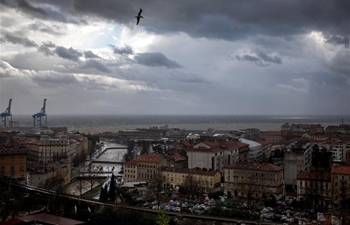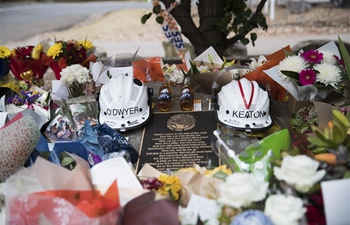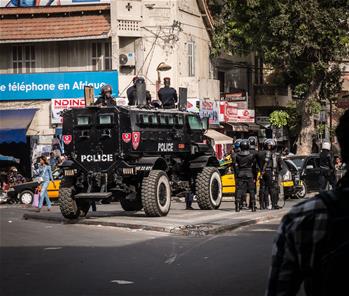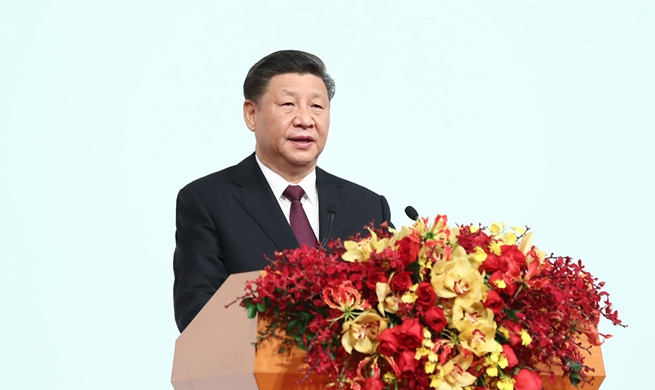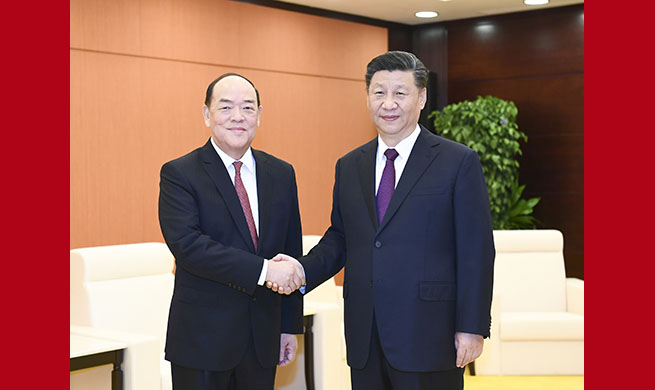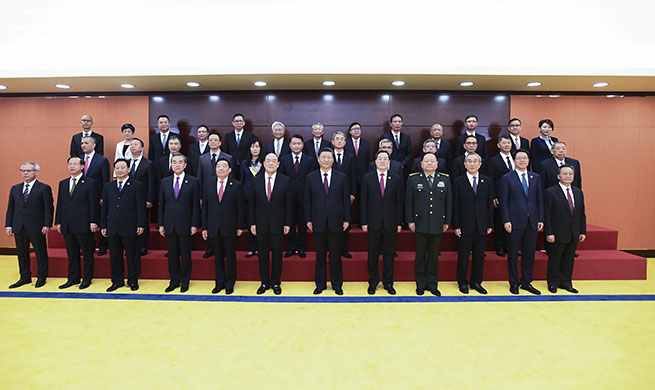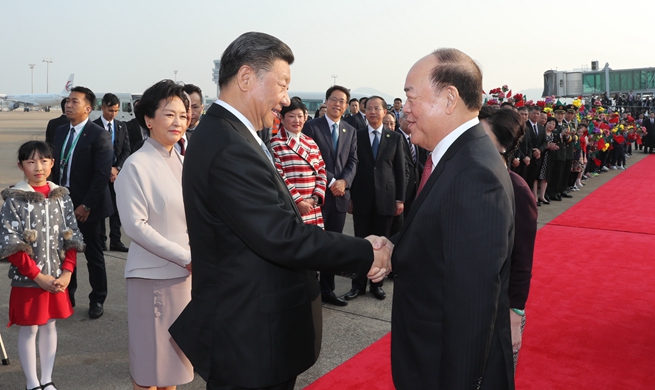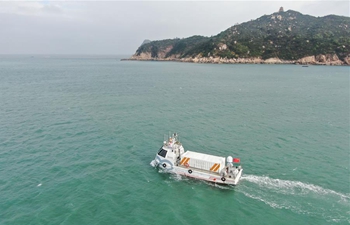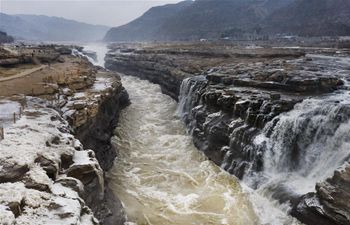by Mahmoud Darwesh
TRIPOLI, Dec. 21 (Xinhua) -- The UN-backed government of Libya on Thursday decided to activate two security memorandums of understanding (MoUs) signed with Turkey on Nov. 27.
One of the two MoUs is a maritime boundary deal that covers areas also claimed by Greece. It was denounced by Greece, Egypt and Cyprus as a violation of international law.
The UN-backed government's decision comes as Turkish support of the UN-backed government against the rival eastern-based army increases, which will increase direct foreign support to each of the rival parties. Therefore, Libya, particularly the capital Tripoli, may witness a high level of military action between the two rivals, according to Libyan experts.
"The MoU approved by the Government of National Accord came at a very sensitive time and would raise negative international moves in Libya. Countries that support each party will intensify their military support, in an attempt to respond to this move by the Tripoli-based government," Miloud Al-Hajj, Libyan university professor of international relations, told Xinhua.
"The Government of National Accord felt that the international community had let it down as Haftar's forces (eastern-based army) continue to besiege Tripoli. Therefore, it had no choice but to resort to Turkey and ask for military assistance to pressure the forces of Haftar (commander of eastern-based army) and the countries that support him, mainly the United Arab Emirates (UAE). This would prompt the Gulf state to cease its military support to the eastern-based army," Al-Hajj said.
The professor pointed out that other countries, such as Egypt, will not accept the MoU, as Egypt has explicitly expressed willingness to continue to support the eastern-based army.
Egypt has warned that the MoU will deepen the Libyan conflicts, while Greece rejected the maritime MoU and granted the Libyan ambassador to Greece 72 hours to leave the country.
Following the signing of the maritime deal, Turkish President Recep Tayyip Erdogan said that his country would have the right to deploy soldiers in Libya if it was invited by the UN-backed Libyan government.
Faraj Al-Takbali, a Libyan political analyst, believes that the MoU will open the door to direct military intervention in the country, and instead of keeping the fighting in Tripoli, it will spread to eastern and southern Libya.
"Turkey knows that the opportunity to achieve its interests in Libya is limited to the Government of National Accord. Ankara bargains Tripoli for military support in exchange for allowing it to excavate in the Mediterranean, especially since Haftar's forces entering Tripoli means the end of the Turkish dream in Libya," Al-Takbali told Xinhua.
Khaled Al-Mahjoub, director of the Department of Moral Guidance of the eastern-based army of Libya, confirmed that the approval of the MoU was done by "traitors who will be arrested by the army soon."
"This is an example of traitors who will be arrested by the armed forces if they do not manage to escape. The Government of National Accord has not been approved by the Parliament. The Government of National Accord is controlled by militias, and therefore has no right to sign any agreements or MoUs of any kind," Al-Mahjoub told local TV channel Libya al-Hadath.
The United Nations Support Mission in Libya (UNSMIL) on Friday stressed importance of political solution to the Libyan crisis.
"UNSMIL will continue its relentless efforts to reach a unified international position on the Libyan crisis. It urges Libyans to return to dialogue, safeguard the lives of innocents, end fighting among brothers, curb foreign interference, and prevent further catastrophes on civilians," UNSMIL said.
The eastern-based army has been leading a military campaign in and around Tripoli since early April, trying to take over the city and topple the UN-backed government.
Thousands have been killed and injured in the fighting, and more than 120,000 people fled their homes from the violence.
General Khalifa Haftar, commander of the eastern-based army, declared recently the launch of the final stage of the military campaign in and around the Tripoli, ordering his troops to further advance into the city.

